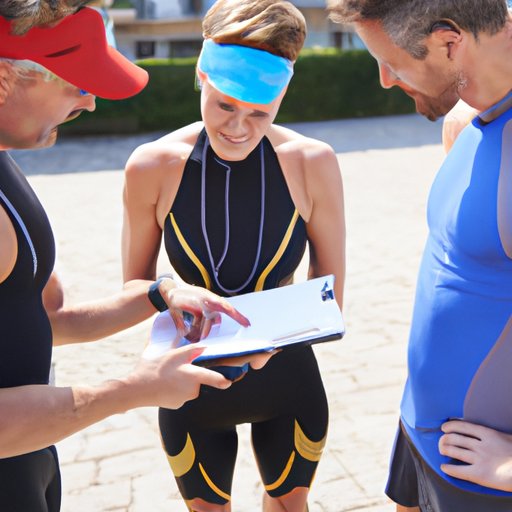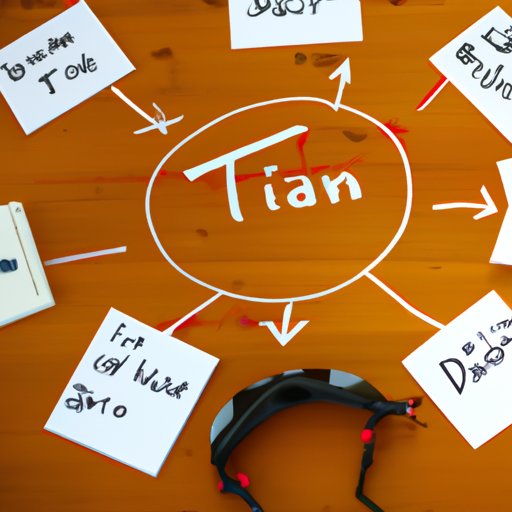Introduction
The triathlon is a physically demanding race that combines running, swimming, and cycling into one event. It’s a challenge that requires dedication, hard work, and proper training in order to complete successfully. Whether you’re a beginner or an experienced athlete, this guide will help you understand the basics of triathlon training and prepare you for success.

Researching the Basics of Triathlon Training
Before beginning your training, it’s important to have a basic understanding of the different types of triathlons and their respective distances. While some triathlons are shorter sprints, others can be as long as an Ironman, which consists of a 2.4-mile swim, a 112-mile bike ride, and a 26.2-mile run. Knowing the type of triathlon you want to compete in will help you plan your training accordingly.
It’s also important to familiarize yourself with the three disciplines of a triathlon: swimming, cycling, and running. Understanding the importance of warm-up and cool-down routines, as well as proper form, will help you maximize your performance during the race. Additionally, you should research the best techniques for transitioning between each discipline and practice them before the race.
Setting Realistic, Achievable Goals
Once you’ve done your research, it’s time to set realistic and achievable goals. Start by deciding on the type of triathlon you want to compete in and then set short-term and long-term goals for each stage of your training. Make sure that your goals are realistic and achievable; don’t try to do too much too soon or you may end up injured or burned out.

Creating a Plan for Each Stage of Training
After setting your goals, you need to create a plan for each stage of training. Break down your training into manageable chunks and plan out each week’s training regimen. Track your progress and adjust your plan as needed. Include rest days in your plan to allow your body to recover and prevent injury.

Seeking Advice from Experienced Triathletes
Another great way to learn about triathlon training is to seek advice from experienced triathletes. Ask questions to get an idea of what works for them and take their advice seriously. Experienced triathletes have already gone through the learning curve and can provide valuable insight into what it takes to succeed.
Developing a Healthy Diet and Sleep Schedule
In addition to physical training, it’s important to develop a healthy diet and sleep schedule. Eating healthy, nutrient-rich foods will give you the energy you need to complete your training. Make sure that you get the right amount of sleep; not enough sleep can lead to fatigue and poor performance.
Investing in the Right Equipment and Gear
Finally, it’s important to invest in the right equipment and gear. Choose the right shoes, clothing, and accessories for each discipline. Quality gear that is designed for triathlon racing will help you perform at your best. If you can’t afford to buy all of the necessary gear, consider renting or borrowing equipment.
Conclusion
Training for a triathlon is a challenging but rewarding journey. With the right approach and attitude, you can reach your goals and achieve success. Remember to keep your goals realistic, create a plan for each stage of your training, and seek advice from experienced triathletes. Develop a healthy diet and sleep schedule, and invest in the right equipment and gear. Most importantly, stay motivated and focused on your goals throughout the process.
(Note: Is this article not meeting your expectations? Do you have knowledge or insights to share? Unlock new opportunities and expand your reach by joining our authors team. Click Registration to join us and share your expertise with our readers.)
